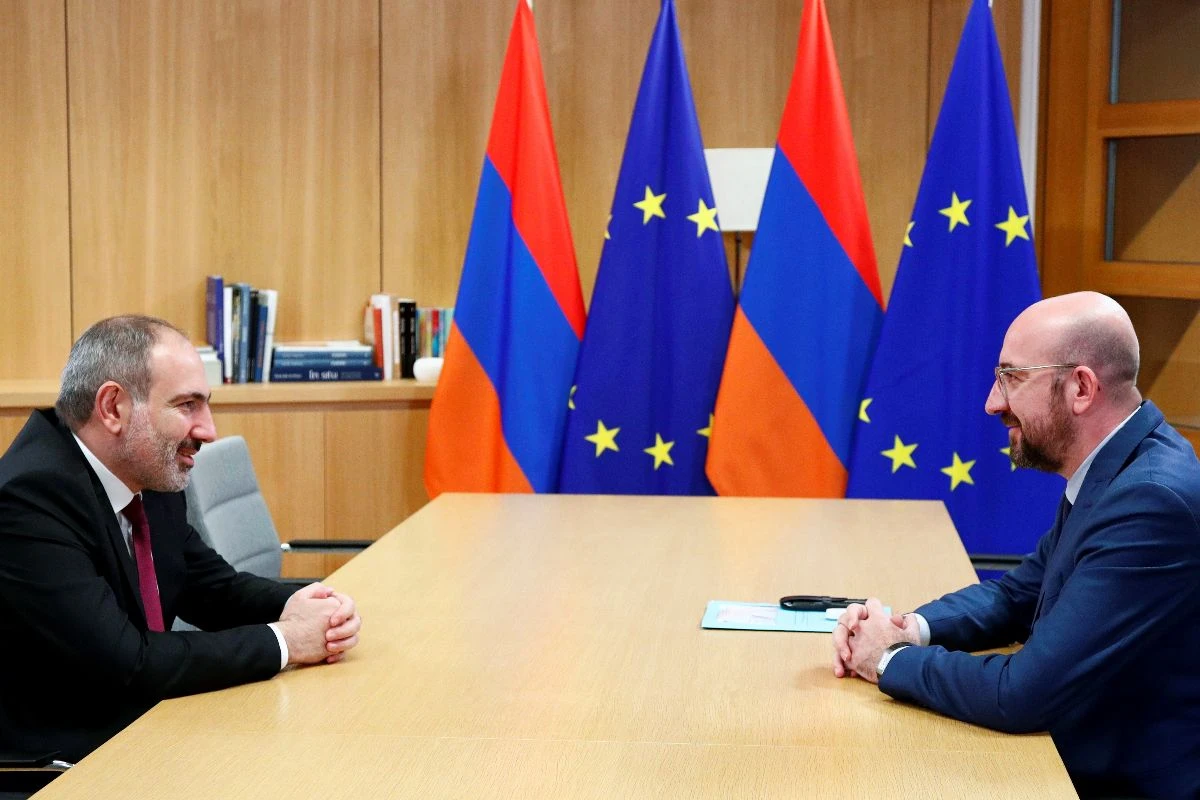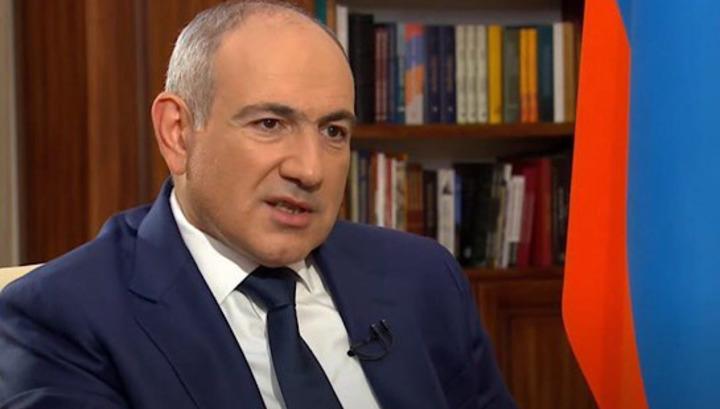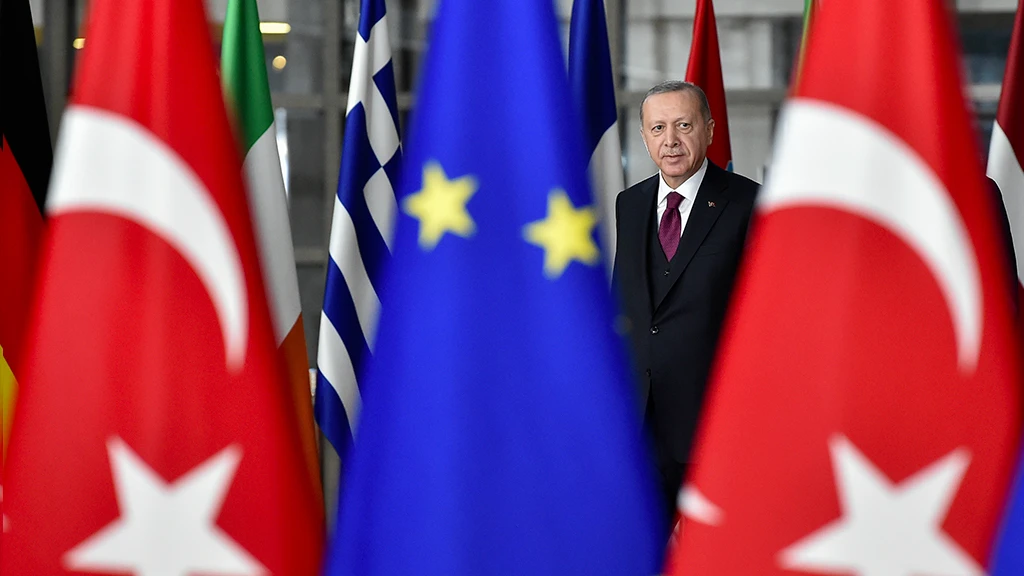Armenia takes step toward EU cooperation with draft law on accession process
 Armenian PM Nikol Vovayi Pashinyan and Charles Michel, a Belgian politician who served as the president of the European Council from 2019 to 2024, accessed on January 9, 2025. (AFP Photo)
Armenian PM Nikol Vovayi Pashinyan and Charles Michel, a Belgian politician who served as the president of the European Council from 2019 to 2024, accessed on January 9, 2025. (AFP Photo)
Armenia’s government has approved a draft law to begin the process of rapprochement with the European Union, signaling its willingness to move closer to the bloc. Prime Minister Nikol Pashinyan emphasized that the proposal should not be seen as an immediate application for EU membership but as a step toward deeper cooperation.
Why it matters
The initiative marks a significant development in Armenia’s foreign policy, reflecting a strategic pivot toward the EU amid heightened geopolitical tensions in the South Caucasus.
This move could have implications for Armenia’s long-standing ties with Russia and regional dynamics.
Details
- Draft law approval: The Armenian government approved the draft law titled “On the start of the process of Armenia’s accession to the European Union” during a cabinet session on Jan. 9.
- Public support: The proposal followed a petition that gathered 60,000 signatures, exceeding the legal requirement of 50,000, led by pro-Western politicians and activists.
- Government position: Foreign Minister Ararat Mirzoyan highlighted the EU’s political support for Armenia and its role in ensuring regional security, including the EU’s civilian monitoring mission on the Armenia-Azerbaijan border.

What they’re saying
This draft law is not an immediate application for EU membership. It indicates Armenia’s readiness for practical steps to deepen cooperation with the European Union.
Prime Minister Nikol Pashinyan
Pashinyan added that discussions with the EU would clarify whether the matter should be put to a national referendum.
The EU has shown consistent political support for Armenia, including in the security domain. Negotiations on visa liberalization have already begun, demonstrating tangible progress in our relationship.
Foreign Minister Ararat Mirzoyan
Context
- Russian response: Moscow has expressed concerns, with Russian Foreign Ministry spokesperson Maria Zakharova stating that the EU’s growing presence in Armenia reflects geopolitical ambitions rather than genuine peacebuilding efforts. However, she acknowledged that Armenia’s work toward visa liberalization with the EU is a sovereign matter.
- Geopolitical backdrop: Armenia’s engagement with the EU comes as the country navigates regional tensions and seeks to diversify its partnerships amid strained relations with Russia.
Zoom out
While Armenia’s steps toward closer EU ties indicate a potential shift in its foreign policy, Pashinyan’s cautious tone reflects a desire to balance national interests without exacerbating tensions with key partners, including Russia. The process will likely require careful negotiation to address domestic, regional, and international implications.



